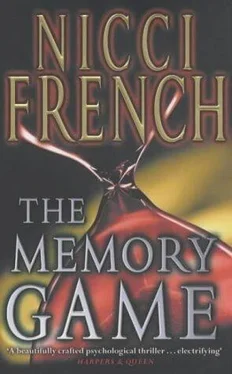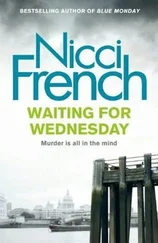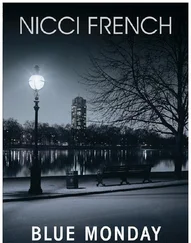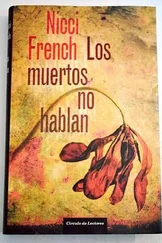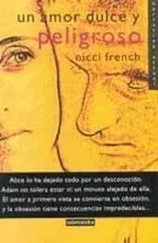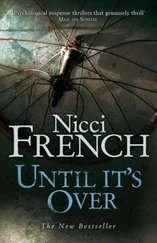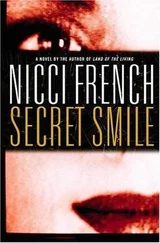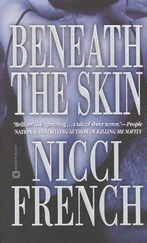Nicci French - The Memory Game
Здесь есть возможность читать онлайн «Nicci French - The Memory Game» весь текст электронной книги совершенно бесплатно (целиком полную версию без сокращений). В некоторых случаях можно слушать аудио, скачать через торрент в формате fb2 и присутствует краткое содержание. Жанр: Триллер, на английском языке. Описание произведения, (предисловие) а так же отзывы посетителей доступны на портале библиотеки ЛибКат.
- Название:The Memory Game
- Автор:
- Жанр:
- Год:неизвестен
- ISBN:нет данных
- Рейтинг книги:4 / 5. Голосов: 1
-
Избранное:Добавить в избранное
- Отзывы:
-
Ваша оценка:
- 80
- 1
- 2
- 3
- 4
- 5
The Memory Game: краткое содержание, описание и аннотация
Предлагаем к чтению аннотацию, описание, краткое содержание или предисловие (зависит от того, что написал сам автор книги «The Memory Game»). Если вы не нашли необходимую информацию о книге — напишите в комментариях, мы постараемся отыскать её.
The Memory Game — читать онлайн бесплатно полную книгу (весь текст) целиком
Ниже представлен текст книги, разбитый по страницам. Система сохранения места последней прочитанной страницы, позволяет с удобством читать онлайн бесплатно книгу «The Memory Game», без необходимости каждый раз заново искать на чём Вы остановились. Поставьте закладку, и сможете в любой момент перейти на страницу, на которой закончили чтение.
Интервал:
Закладка:
My eyes hopped through the text, trying to find the important details. Alan had pleaded guilty, refusing to make any plea in mitigation. The prosecution QC had made a brief evidentiary statement (much of which consisted of Natalie’s note, the circumstances of its finding and my memory). He concluded that, in the light of the psychiatrist’s report, the prosecution saw no reason to doubt that Alan Martello was sane. There was nothing about him having made Natalie pregnant. I didn’t know why. Before the judge passed sentence, Alan had made just one statement: ‘I am expiating a horrible crime which has haunted my family for decades.’ He refused to elaborate on this or to say anything else at all. The judge described the murder of a daughter by her father as one of the most heinous and primal of crimes and said that Alan’s refusal adequately to acknowledge what he had done or to co-operate fully with proceedings had only made matters worse. He was sentenced to life imprisonment with the recommendation that he serve at least fifteen years.
There was a large photograph of the Martello brothers, grim-faced, all present at the trial. They had refused to make any comment to the press and the Standard called them ‘dignified, almost heroic’. Claud, apparently, had held Fred while he wept. There was a smaller picture of me, hand flung over my face, and a cropped portrait of Natalie which I’d never seen before. She looked younger than sixteen in it and conventionally pretty. Nothing threatening or sinister about that face. There was a two-page story under the heading, NATALIE’S SHORT LIFE AND BRUTAL DEATH. Under a slightly blurred photo of the seven Martellos all together and smiling ran a short piece starting: ‘They seemed such a happy family.’ There was another story about the police investigation; my own name flared up at me from the first paragraph but that story I didn’t read; couldn’t.
The phone rang, and I froze, cupping my cooling tea in my hands.
‘Jane, it’s Kim. Come on, you can pick up the phone.’
‘Kim.’ I think I’d never been so glad to hear a voice. ‘Kim, thank God it’s you.’
‘Listen, we can talk later. I’ve booked us a room in a little hotel in Bishop’s Castle, on the Welsh Borders. I’m taking you away for the weekend. Can you be ready by half past five? I’ll pick you up.’
I didn’t protest. ‘What would I do without you, Kim? Yes, I can.’
‘Right. Pack walking boots and lots of warm clothes. Bye.’
I ran upstairs and threw some long-sleeved T-shirts, jumpers and socks into a large hold-all; dug out my walking boots, still caked with mud from a year before; found my cagoule wrapped up in itself at the back of the cupboard. A quarter to five. I lit a cigarette, and turned on the small TV at the end of the bed. Alan’s face again stared at me, all beard and fierce eyes, before the camera switched to the earnest face of an absurdly young reporter. ‘Passing sentence, the judge described the murder of a daughter by her father as one of the worst, and most unnatural crimes that could be imagined…’ I leant forward, in a panic, and shoved Paul’s video into the player. The young reporter disappeared abruptly. Through a curl of smoke, the Stead appeared on the screen as the title and credits rolled.
Paul’s making of his film about the family had seemed so sporadic and arbitrary that in spite of having seen the final sequence I think I had expected something like a camcorder picture of a holiday. It wasn’t like that at all. Paul began by reading an extract from A Shropshire Lad:
Into my heart an air that kills
From you far country blows.
What are those blue remembered hills,
What spires, what farms are those?
The camera moved slowly over the Shropshire landscape around the Stead, skeletal in its winter garb, but still gorgeous. The sun glinted through the bare branches, and the old house sat rosy-stoned and welcoming. It was the house of my childhood and the land of my lost innocence.
I sat entranced while my cigarette burnt down to my fingertips and gazed as Paul spoke intimately to the camera. Memory, he was saying, is intangible, and die memories one has of childhood, which glow so vividly through all of our adult life, are seductive and nostalgic. And if one’s childhood is happy, then adulthood is like an exile from its joy. We can never return. More music, and the camera zoomed in on the door of the Stead. Alan walked out. My ash fell onto the duvet cover and I brushed it heedlessly away. He quoted something from Wordsworth, and spoke about love. He said, with all the old Alan bravado, that he had been a wild young man who had scorned the concept of family and kicked against its traces. But he had learnt that this – he gestured at the Stead – was where he could be himself. He talked about the family as the place where you could be most tormented, or most at peace. ‘For myself, I have found a kind of peace,’ he said. He looked, as he stood on the threshold, like a mass-produced wise patriarch that you might buy in a souvenir shop. I watched his broad hands as he gestured, and I shuddered. Martha, thin as a tree branch, came through the doorway carrying a broad basket and some secateurs, smiled strangely at the camera and walked off screen. The camera moved sideways, and came to rest on the site where Natalie’s body had been found. Paul stated the facts. Then came a series of stills of Natalie: as a baby, a toddler, a ten-year-old, a teenager; on her own, with her family. Then her tombstone.
Claud appeared and now that I was his audience I saw how handsome he was, how serious. I sat like a coiled spring while I waited for him to talk about me, and our marriage break-up, but all he said was that ‘some things had not turned out as he had hoped’. I was shocked by the spasm of pity and love that jolted me. Cut to Robert and Jerome playing frisbee on Hampstead Heath. So young and carefree. Then Jerome, affectionately derisive on how the older generation was obsessed with the past. Fred, at home with his family on their well-tended patio. Alan again, drinking brandy and being expansive on the power of forgiveness. Theo comparing a family to a computer program.
Me, that was me, red-faced in my kitchen. Oh God, Christmas – but the Christmas I watched as I waited for Kim to arrive was one of festive hilarity: laughter boomed out of the television; I smiled a lot and handed round wine (had I smiled a lot that evening? I couldn’t remember). Erica and Kim looked like two extravagant birds of paradise in their purple and yellow get-ups. Dad was distinguished Old Age, and my sons fresh Youth. The power of editing – to splice images so that collective trauma becomes a display of boozy unity.
I smoked the last cigarette in the packet. In spite of being revolted by the film’s message, smashed as it was into a thousand pieces by Alan’s confession, I was half seduced by its melancholy insistence upon the past as a place of innocence and joy, the lost Eden in everyone. The music, the winter greenness of Shropshire, the faces that came and went on the television screen, as familiar as the palm of my hand, the way that Paul, somehow, had made even his most resistant interviewees talk with a kind of inner concentration so that they seemed to be discovering truths about themselves for the first time – these things filled me with rich sorrow.
The film was nearing its end now. Paul was walking along the Col, hands in his pocket. The brown water was swollen with all the recent rain. He stopped and turned towards the camera, held out his hands in a gesture of offering. Oh, God, he was reciting poetry again:
That is the land of lost content,
I see it shining plain,
The happy highways where I went
Читать дальшеИнтервал:
Закладка:
Похожие книги на «The Memory Game»
Представляем Вашему вниманию похожие книги на «The Memory Game» списком для выбора. Мы отобрали схожую по названию и смыслу литературу в надежде предоставить читателям больше вариантов отыскать новые, интересные, ещё непрочитанные произведения.
Обсуждение, отзывы о книге «The Memory Game» и просто собственные мнения читателей. Оставьте ваши комментарии, напишите, что Вы думаете о произведении, его смысле или главных героях. Укажите что конкретно понравилось, а что нет, и почему Вы так считаете.
